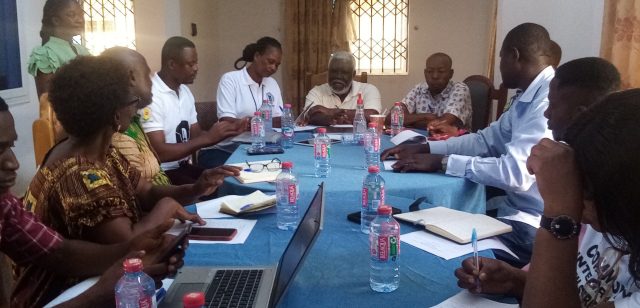The Bono Regional Chapter of the Ghana National Education Campaign Coalition (GNECC) has called on the government to find sustainable sources of financing basic education in the country to make it more accessible to children of school-going age.
According to Mr Kobina Afena-Sam, the Bono Regional Chairman of the Coalition, access to quality basic and formal education remained constitutional provision which and no Ghanaian child should be denied.
Denying school-going age children access to quality education was not only abuse of their human rights, but also an affront to the 1992 constitution, he stated.
Mr Afena-Sam made the call at the Regional Council meeting of the GNECC held in Sunyani.
He expressed worry that many basic schools in the region were still bedeviled with challenges including inadequate physical infrastructure, text books and furniture as well as lack of teachers.
These challenges, he added, were impeding the growth and development of education in the region and also affecting academic performances of school children.
Mr Afena-Sam said the country’s over-reliance on donor, foreign and development partners to financing basic education was unsustainable, hence the need for the government to consider and find resources locally to implement educational programmes.
Research, he added was key element of facilitating education growth and development, saying the Coalition intended to set up a regional research unit that would conduct vigorous research work into basic education in the region.
This would well-position the coalition to identify and help tackle the pressing challenges confronting basic education in the region.
“In fact we are more concern about the welfare of the child. So we need to use the media space and intensify advocacy, raise funds to address the teething challenges impeding the growth of basic education,” Mr Afena-Sam stated.
Mr Raphael Godlove Ahenu, the Bono Regional Coordinator of the GNECC, urged the members to also champion the course of menstrual hygiene at the community level.
He reiterated appeals by the civil society to the government to remove taxes on sanitary pads to make them affordable for girls.
Mr Ahenu said at the community level, many girls failed to go to school during menstruation, a situation that was lowering the interest of some girls in education.
“The government must do more and improve sanitary facilities in basic schools so that girls can change and clean themsleves whenever they are in their menstrual periods, ” he stated.







![“I made Shatta Wale who he is today” – Singer Kay Smooth alleges [Video]](https://ghananewss.com/storage/2023/04/Kay-Smooth-Shatta-Wale-100x75.jpeg)

![Mr Logic’s Red Panther record label officially signs two Afro-dancehall artistes[Video]](https://ghananewss.com/storage/2023/05/Mr-Logic-signs--100x75.jpeg)






